
Senior writer Tina Hesman Saey is a geneticist-turned-science writer who covers all things microscopic and a few too big to be viewed under a microscope. She is an honors graduate of the University of Nebraska-Lincoln where she did research on tobacco plants and ethanol-producing bacteria. She spent a year as a Fulbright scholar at the Georg-August University in Göttingen, Germany, studying microbiology and traveling. Her work on how yeast turn on and off one gene earned her a Ph.D. in molecular genetics at Washington University in St. Louis. Tina then rounded out her degree collection with a master’s in science journalism from Boston University. She interned at the Dallas Morning News and Science News before returning to St. Louis to cover biotechnology, genetics and medical science for the St. Louis Post-Dispatch. After a seven year stint as a newspaper reporter, she returned to Science News. Her work has been honored by the National Academies of Sciences, Engineering and Medicine, the Endocrine Society, the Genetics Society of America and by journalism organizations.

Trustworthy journalism comes at a price.
Scientists and journalists share a core belief in questioning, observing and verifying to reach the truth. Science News reports on crucial research and discovery across science disciplines. We need your financial support to make it happen – every contribution makes a difference.
All Stories by Tina Hesman Saey
-
 Health & Medicine
Health & MedicineHow the new coronavirus stacks up against SARS and MERS
Coronaviruses are a diverse family that may be becoming more threatening to people.
-
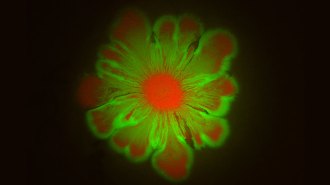 Life
LifeHow bacteria create flower art
Different types of microbes growing in lab dishes can push each other to make floral patterns.
-
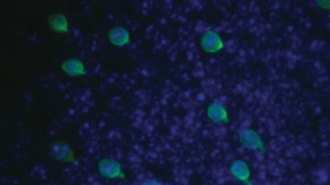 Health & Medicine
Health & MedicineHairy cells in the nose called brush cells may be involved in causing allergies
Some hairy cells in the nose may trigger sneezing and allergies to dust mites, mold and other substances, new work with mice suggests.
-
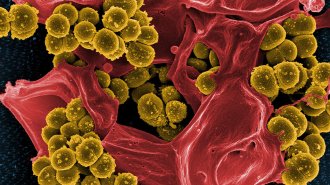 Microbes
MicrobesMicrobes slowed by one drug can rapidly develop resistance to another
Hunkering down in a dormant, tolerant state may make it easier for infectious bacteria to develop resistance to antibiotics.
-
 Health & Medicine
Health & MedicineA bioethicist says scientists owe clinical trial volunteers support
Researchers should be aware that many insurance policies do not cover experimental procedures, including side effects that may happen afterward.
-
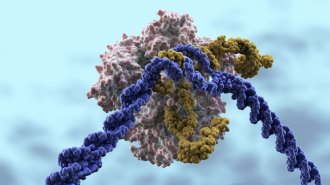 Genetics
GeneticsThe first U.S. trials in people put CRISPR to the test in 2019
Trials of the gene editor in people began in the United States this year, a first step toward fulfilling the technology’s medical promise.
-
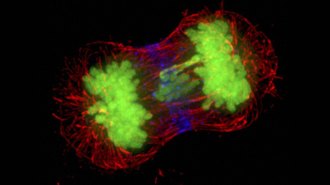 Health & Medicine
Health & MedicineSurplus chromosomes may fuel tumor growth in some cancers
Extra copies of some genes on excess chromosomes may keep cancer cells growing. Without those extras, cancer cells form fewer tumors in mice.
-
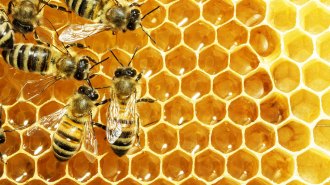 Animals
AnimalsA biochemist’s extraction of data from honey honors her beekeeper father
Tests of proteins in honey could one day be used to figure out what bees are pollinating and which pathogens they carry.
-
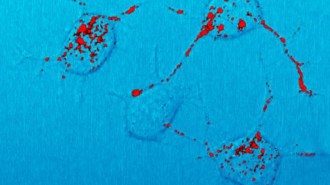 Life
LifePrions clog cell traffic in brains with neurodegenerative diseases
Prions may derail cargo moving inside brain cells, perhaps contributing to cell death in prion diseases.
-
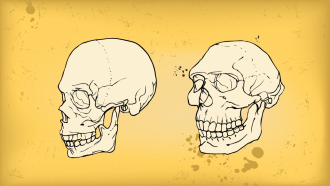 Humans
HumansA gene tied to facial development hints humans domesticated themselves
Scientists may have identified a gene that ties together ideas about human evolution and animal domestication.
-
 Humans
HumansWhy screening DNA for ‘designer babies’ probably won’t work
While simulations suggest it’s possible to predict a child’s height from looking at an embryo’s DNA, real-world examples say otherwise.
-
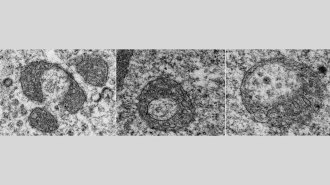 Life
LifeSelf-destructing mitochondria may leave some brain cells vulnerable to ALS
Mitochondria that appear to dismantle themselves in certain brain cells may be a first step toward ALS, a mouse study suggests.